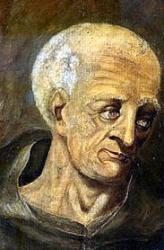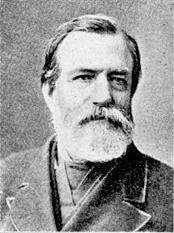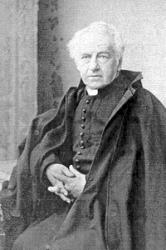1705 - 1775 Person Name: T. Scott Hymnal Number: 116 Author of "Angels, roll the rock away!" in The Hymnal Thomas Scott was born at Norwich, and was the son of a Dissenting minister. After his education he began his ministerial life at Wartmell, in Norfolk, adding also the labours of school-teaching. Subsequently he changed his pastoral relations several times, spending the last years of his life at Hupton, in Norfolk, where he died in 1776. He was the author of some prose works, several poems, and a few hymns.
--Annotations of the Hymnal, Charles Hutchins, M.A., 1872
============================
Scott, Thomas, son of Thomas Scott, Independent Minister at Norwich, brother of Elizabeth Scott, and nephew of Dr. Daniel Scott, was born at Norwich, 1705. As a young man he kept a school at Wortwell, and preached once a month at Harleston, Norfolk. Then, after a short ministry at Lowestoft, he removed in 1734 to Ipswich as co-pastor with Mr. Baxter of the Presbyterian congregation meeting in St. Nicholas Street Chapel. On the death of his senior in 1740 he became sole pastor. In 1774 he retired to Hapton, and died there in 1775. He was the author of various poetical works, including:— (1) The Table of Cebes; or, the Picture of Human Life, in English Verse, with Notes, 1754; (2) The Book of Job, in English Verse; translated from the original Hebrew, with Remarks, Historical, Critical, and Explanatory, 1771; 2nd ed. 1773; (3) Lyric Poems, Devotional and Moral. By Thomas Scott, London, James Buckland, 1773.
To Dr. Enfield's Hymns for Public Worship, Warrington, 1772, he contributed "All-knowing God, 'tis Thine to know" (p. 43, ii.); "Angels! roll the rock away" (p. 69, i.); "As various as the moon " (p. 85, ii.); and the following:—
1. Absurd and vain attempt to bind. Persecution.
2. Behold a wretch in woe. Mercy.
3. Imposture shrinks from light. Private Judgment, its Rights and Duties.
4. Mark, when tempestuous winds arise. Meekness.
5. O come all ye sons of Adam and raise. Universal Praise to God.
6. Th' uplifted eye and bended knee. Devotion vain without Virtue.
7. Was pride,alas, e'er made for man? Humility.
8. Why do I thus perplex? Worldly Anxiety reproved.
In his Preface to his Lyric Poems, 1773, he said that the object of his work was:—
"To form a kind of little poetical system of piety and morals. The work opens with natural religion. Thence it proceeds to the mission of Jesus Christ, his sufferings, his exaltation, and the propagation of his doctrine. Next is the call to repentance, the nature and blessedness of a Christian life, and the entrance into it. These topics are succeeded by the various branches of devotion: after which are ranked the moral duties, personal and social, the happy end of a sincere Christian, and the coming of Jesus Christ to finish his mediatorial kingdom by the general judgment. The whole is closed with a description of the illustrious times, when by means of the everlasting gospel, the earth shall be full of the knowledge of the Lord as the waters cover the sea."
Of Scott's better known hymns this volume contained most of those named above, and:—
9. Hasten, sinner, to be wise. p. 493, ii.
10. Who, gracious Father, can complain? The Divine Dispensation
In the Collection of Hymns and Psalms, &c, 1795, by Kippis, Rees, and others, several of the above were repeated, and the following were new:—
11. If high or low our station be. Justice.
12. Happy the meek whose gentle breast. Meekness.
Doctrinally Scott might be described as an evangelical Arian. Hymns of his appear in most of the old Presbyterian collections at the close of the last century, and in the early Unitarian collections. Several are still in common use in G. Britain and America. [Rev. Valentine D. Davis, B.A.]
-- John Julian, Dictionary of Hymnology (1907)
Thomas Scott


 My Starred Hymns
My Starred Hymns






